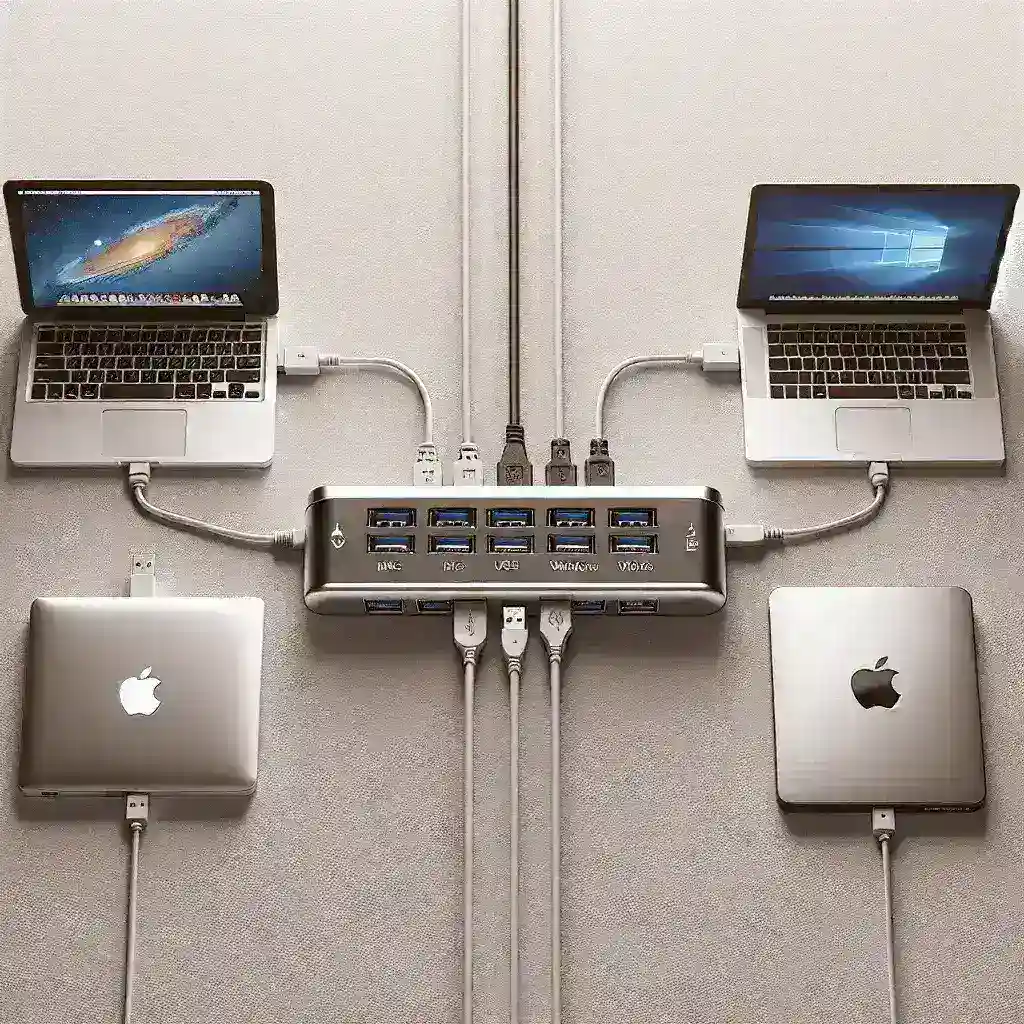As technology continues to evolve, the need for versatile and efficient connectivity solutions has grown significantly. One of the most practical devices for achieving this is the USB hub. USB hubs allow users to connect multiple devices to a single USB port, enhancing productivity and making it easier to manage peripherals. However, many users often wonder: do USB hubs work with both Mac and Windows computers? In this article, we will explore the compatibility of USB hubs with Mac and Windows systems, examine different types of USB hubs, and provide valuable insights into their features and performance.
| USB Hub Type | USB Version | Compatibility |
|---|---|---|
| Standard USB Hub | USB 2.0 | Both Mac and Windows |
| Powered USB Hub | USB 3.0 | Both Mac and Windows |
| USB-C Hub | USB 3.1 | Both Mac and Windows |
| Multi-Port USB Hub | Various | Both Mac and Windows |
Understanding USB Hubs
Before diving into compatibility details, it’s essential to understand what a USB hub is and how it functions. A USB hub is a device that expands a single USB port into several ports, allowing multiple USB devices, such as printers, scanners, and external drives, to be connected simultaneously. Hubs can be passive (bus-powered) or powered (with an external power source), which can provide additional power to connected devices.
Types of USB Hubs
There are several types of USB hubs, each designed to cater to different needs:
- Standard USB Hub: Typically connects via USB 2.0 and allows multiple devices to be connected.
- Powered USB Hub: Supports more demanding devices by providing external power, usually through USB 3.0 or higher.
- USB-C Hub: Designed for newer devices, these hubs utilize the USB Type-C port, which can support faster data transfer rates.
- Multi-Port USB Hub: Comes with various types of ports, including USB-A, USB-C, HDMI, and more for versatile connectivity.
Compatibility with Mac and Windows
In general, USB hubs are designed to be compatible with various operating systems, including Mac and Windows. Here are key points regarding their compatibility:
Driver Installation
Most USB hubs do not require additional drivers for basic functionality. Both Mac and Windows operating systems typically recognize USB hubs automatically. However, certain features of powered hubs, such as charging capabilities, may require additional drivers or software, which can be found on the manufacturer’s website.
USB Versions
Compatibility often depends on the USB version supported by both the hub and the computers:
- USB 2.0: This is a widely supported version, ensuring basic compatibility with most devices.
- USB 3.0: Provides faster data transfer rates and is backward compatible with USB 2.0.
- USB 3.1/USB-C: These newer versions offer even faster speeds and are becoming increasingly common in modern devices.
Connectivity Options
Many USB hubs come with additional ports for SD cards, HDMI connections, and Ethernet, enhancing their utility across different devices. Make sure to check if your hub’s additional features are compatible with both Mac and Windows.
Performance Factors
While most USB hubs will work with both Mac and Windows, several factors can influence their performance:
Power Supply
Powered USB hubs are advantageous because they can supply more power to devices, which is especially useful for external drives and other power-hungry peripherals.
Build Quality
The material and construction of a USB hub can affect its reliability. High-quality hubs often have better heat dissipation and can handle multiple connections without performance degradation.
Brand Reputation
Opting for reputable brands can lead to a more reliable and better-performing hub. Brands that specialize in tech accessories often offer better support and durability.
Conclusion
In conclusion, USB hubs are indeed compatible with both Mac and Windows computers, making them an invaluable tool for anyone needing to connect multiple devices. While factors such as USB version, power supply, and build quality will influence performance, users can generally expect a positive experience across platforms. As you consider purchasing a USB hub, be sure to assess your specific connectivity needs and choose a model that aligns best with your devices.

